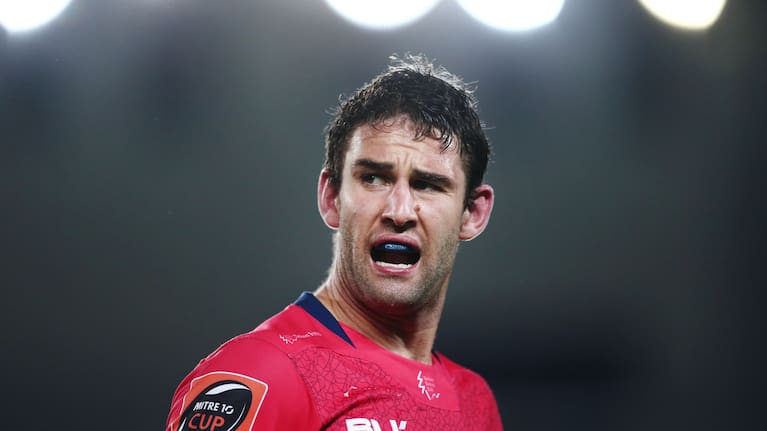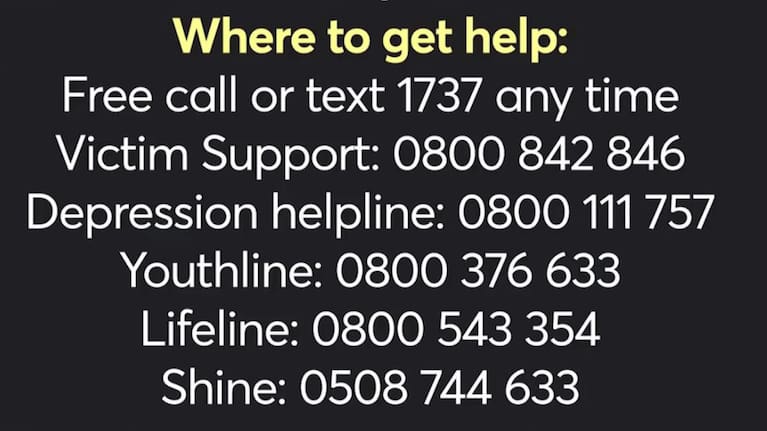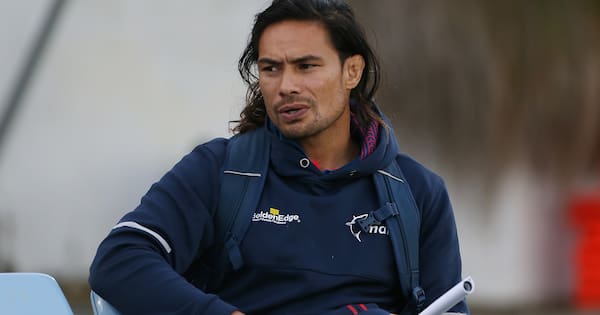Steve Mitchell, the Tasman Rugby chief executive, has described the recent death of Shane Christie as “devastating” and says the game must improve how it looks after its athletes.
Christie, the former Tasman, Crusaders, Highlanders and New Zealand Māori player, was found dead yesterday aged 39, in a suspected suicide.
He had a history of concussions and was forced to retire from the game in 2018 as a result. He was a big advocate of the wellbeing of rugby players in their retirement following the sudden death of his friend Billy Guyton, a former Blues, Tasman and Southland player, in similar circumstances.
Widespread grief over the loss of former Highlanders flanker and Tasman NPC captain. (Source: 1News)
Guyton, a close friend and teammate, was found to have chronic traumatic encephalopathy (CTE) in a brain study carried out following his death in 2023. He was the first professional New Zealand-based rugby player confirmed to have the disease.
CTE is a degenerative brain disease that can currently only be diagnosed after death.
Christie told 1News earlier this year he was worried he also had CTE.
Mitchell, who has been in his current role for just over 12 months, was also close to Guyton. “I’m absolutely heartbroken for both of these lads,” he said.
Māori All Black’s sudden death puts spotlight back on head knocks. Watch on TVNZ+
Mitchell said he was about to board a flight to Wellington when he heard the news via a phone call.
“It was instant shock to the whole community.
“I knew Shane really well. When I first started with the union in 2014, I was operations manager. Shane captained the side to winning the title in 2013 and continued to be the captain.
“I come from an amateur boxing background, and I was lucky enough to know some fairly combative athletes in my time. Shane was definitely ranked, in my book, up there with the best of them. An ultimate warrior. Hugely competitive and combative on the field but hugely gentle off it.

“It’s wider than Tasman rugby.
“Everyone who talked to Shane absolutely loved him. Everyone in the community is devastated.”
Mitchell said rather than apportioning blame or criticism, his and Tasman’s focus was on Christie’s whānau.
“But from Tasman Rugby’s perspective this is concerning, very concerning.
“It’s the second athlete [I have known] who has been through a very similar situation.
“I’m not a medical professional and I don’t really know [the details] but I do know the affects of consecutive concussions and it is a worrying trend. For the sport and wellbeing of our athletes there probably needs to be more done in this space.
“Concussion isn’t singled out for rugby specifically. As a sporting nation, there perhaps needs to be more work across the board to ensure our children and participants are kept safe across the board.
“I’ve been involved in sport in 40 years and rule number one is care and protection of the athlete. It is important that we look into this and work out a way to serve our people.”

Swinburne University neurophysiologist Professor Alan Pearce was a friend of Christie. He said the former player was an “absolute advocate for bringing the issue of CTE and concussion in sports to the wider community”.
“Shane set up the Billy Guyton Foundation to raise awareness and funding for education and research.
“Shane never backed down [from] talking about the issue, even when under pressure to not talk. He spoke to many experts from different areas, to understand the issue of CTE.
“From a personal perspective, Shane and I spoke quite regularly. He was always a beacon of positivity, encouraging me to keep pushing and to not give up when I missed out on research funding.
“It was such a shock to hear of Shane’s passing, and I will miss our chats, but his legacy will live on through his brain donation and through his advocacy via the Billy Guyton Foundation.”
In a statement following Christie’s death, New Zealand Rugby said: “We share the deep sadness felt across the rugby community.
“Player safety and wellbeing remain New Zealand Rugby’s number one priority. We have taken, and will continue to take, a precautionary approach, with a clear focus on reducing and mitigating the risk of injury and exposure to head acceleration events at every level of the game.
“We are committed to making rugby as safe as possible, and to leading globally in player welfare initiatives. This includes everything from law trials in community rugby, to workload management in the professional game, and ongoing investment in scientific research.”

